Muhlenberg College Announces Faculty Promotions
Seven members of the faculty were recently granted tenure and promoted to associate professor by the Board of Trustees on the recommendation of President Kathleen Harring.By: Kristine Yahna Todaro Thursday, February 4, 2021 10:27 AM
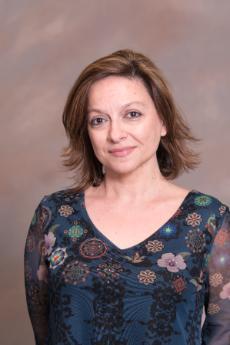
Ioanna Chatzidimitriou, Associate Professor of French
Teaching in the newly redesigned French and Francophone Studies Program which she helped develop, Chatzidimitriou’s courses emphasize contemporary French urban culture and literature, francophone North Africa and Caribbean, francophone cultural production in the age of globalization, and writing. Her research interests lie at the intersections of language and politics in the francophone world. Her recently published book, Translingual Francophonie and the Limits of Translation (Routledge, 2020), focuses on the uses of translation by code-switching authors in contemporary francophone literature.
Courses taught include Negotiating Identity in Contemporary France, French Theatre of Resistance, France and Asia, The Algerian War, Approaches to Textual Analysis, Negotiating Identity in Contemporary France and Globalization and the Legacy of Empire.
Chatzidimitriou earned her B.A. in French Language and Literature from the University of Athens, Greece, and her Ph.D. in Comparative Literature at the University of North Carolina, Chapel Hill.
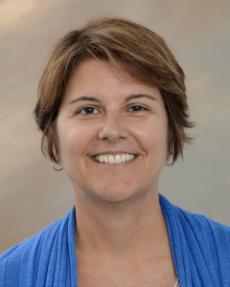 Chrysan Cronin, Director and Associate Professor of Public Health
Chrysan Cronin, Director and Associate Professor of Public Health
Cronin has been a key player in the College’s public health program since its inception and was a member of the faculty task force who designed the then public health minor, which debuted in 2006. Under her direction, public health has become one of the most popular majors at the College. She spent much of the last year sharing her expertise with journalists and College website readers as the novel coronavirus pandemic impacted the globe. Her research interests include radon risk communication in the Lehigh Valley, specifically in the Spanish speaking community. In addition, she is the faculty mentor for a student-driven program to train Lehigh Valley community members to administer Narcan, a drug that can reverse an opioid overdose.
Courses taught include Issues in Public Health, Environmental Health, Occupational Health, Infectious Disease Epidemiology and a short-term study abroad course, Public Health in Panama.
Cronin earned a B.S. from the University of New Hampshire, M.S. from New Mexico State University and an MPH and DrPH from Johns Hopkins Bloomberg School of Public Health.
 Maura Finkelstein, Associate Professor of Anthropology
Maura Finkelstein, Associate Professor of Anthropology
Finkelstein is a broadly trained cultural anthropologist with two long-term ethnographic projects in the subfields of urban anthropology and medical anthropology/interspecies ethnography. Her first book, The Archive of Loss: Lively Ruination in Mill Land Mumbai (Duke University Press April 2019) argues that the temporal frame of the postindustrial city eclipses the experiences of contemporary industrial workers living and working within the modern moment.
Finkelstein sees the classroom as a site of engagement, activism, and learning, not just for her students, but also for herself. In her teaching, she creates and recreates her classrooms as a space in which she—alongside with her students—teach and learn about what it means to be in the world. Courses taught include Introduction to Cultural Anthropology, Theory and Methods, as well as Borders and Boundaries, Queer Ethnography, Urban Anthropology, Magic and Modernity and The Anthropology of Palestine.
Finkelstein earned an M.A. from Columbia University and a Ph.D. in anthropology from Stanford University.
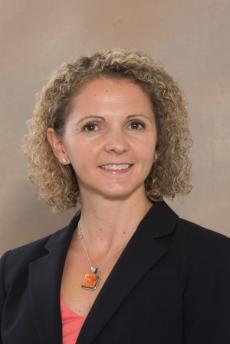 Ermira Mazziotta, Associate Professor of Accounting
Ermira Mazziotta, Associate Professor of Accounting
In her teaching, Mazziotta connects the classroom to the practical business world and encourages students to explore and express an intellectual curiosity in everything they do. Her research interests include analyzing the anatomy of fraud and how fraud impacts financial statements and consequently all shareholders involved. Another area of research interest for Mazziotta is analyzing the social responsibility that businesses have towards their communities and society by investigating the “Profit with Purpose” idea. How can businesses be profitable while also being good citizens towards their local and global communities?
Courses taught include Accounting Information Systems, Financial Accounting, Cost Managerial accounting and Auditing/Assurance Service.
Mazziotta earned her B.S. from the University of Tirana, Albania, and M.B.A. from Saint Joseph’s University.
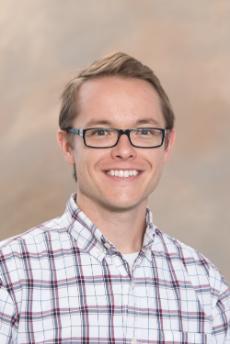 Dustin Nash, Associate Professor of Religion Studies
Dustin Nash, Associate Professor of Religion Studies
Nash’s research straddles disciplinary boundaries by exploring the nexus between religion, politics, and identity in the formation of the Hebrew Bible. His current book project reflects this interest by offering a new interpretation of the Bible’s representation of the Israelite tribes as “brothers” and its impact on the development of early Jewish identity. His interest in religious identity and memory has also led him to conduct field research at the Creation Museum located in Petersburg, Kentucky, resulting in multiple publications and presentations regarding the site’s depiction of Jews, the Ancient Near East, and Dinosaurs. Nash brings his research on this Young-Earth Creationist facility into the classroom through his first-year seminar, where students examine its spatial rhetoric as a site of “public memory.”
Courses taught include the first-year seminar Proving the Unprovable, Hebrew Bible, Jewish Traditions, Paths in Jewish Thought and Myth, Religion, and Creation.
Nash received a B.A. from Luther College, an M.A. and Ph.D. from Cornell University, and an M.T.S. from Harvard Divinity School. He was also a Non-Degree Visiting Graduate Student at The Hebrew University of Jerusalem.
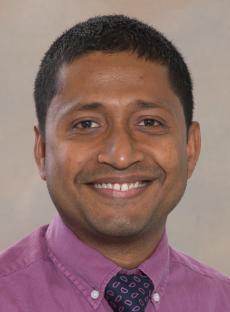 Ranajoy Ray-Chaudhuri, Associate Professor of Economics
Ranajoy Ray-Chaudhuri, Associate Professor of Economics
Ray-Chaudhuri’s primary teaching fields are macroeconomics, money and banking and development economics. In addition, he has taught courses on the BRICS countries, international trade, international finance, political economy, microeconomics, statistics and econometrics. He also enjoys developing and teaching classes on topics that impact and inform public policymaking. Ray-Chaudhuri’s research focuses on the history of financial regulations, central bank autonomy and the conduct of monetary policy, and the impact of financial development and institutional changes on economic growth. He recently completed two book projects, the first on the history of financial regulations in the United States with a focus on commercial banking and the second on the independence of central banks and its impact on monetary policy.
Courses taught include Macroeconomics, Development Economics, the first-year seminar Hopes, Dreams & Walls, Dana Scholars and Muhlenberg Scholars Seminars and Money/Banking/Financial Market.
Ray-Chaudhuri earned a B.A. from Jadavpur University, India, an M.A. from Jawaharlal Nehru University, India, and an M.A. and Ph.D. from The Ohio State University.
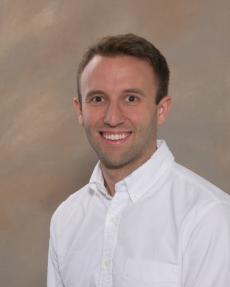 Justin Sparks, Associate Professor of Chemistry
Justin Sparks, Associate Professor of Chemistry
In his teaching, Sparks emphasizes the interconnected nature of scientific principles to help students organize seemingly complicated topics into a cohesive concept network. His objective as a professor is to not only teach the course content in an engaging and enduring manner but to also ingrain a passion and curiosity to continually ask, and seek answers to, "why?".
In his research, Sparks uses strong coupling to alter molecular properties without changing the elements, bonds, or geometry in a formal sense. By coupling, or "mixing", light with matter, his research group modifies the characteristics of molecules in an effort to access novel chemistries that are unattainable by traditional means.
Courses taught include CUE: Chemistry Seminar, General Chemistry I & II, Physical Chemistry I & II, Materials Chemistry and Scientific Computing.
Sparks earned his B.S. from DeSales University and his Ph.D. from The Pennsylvania State University.
